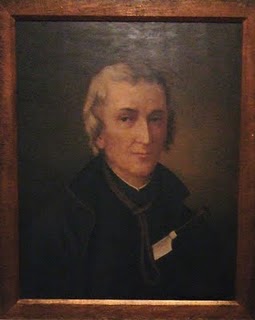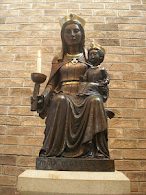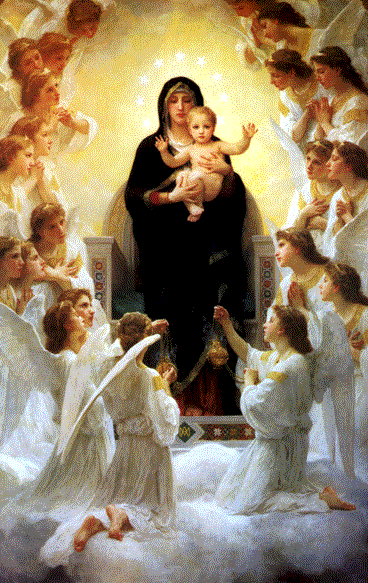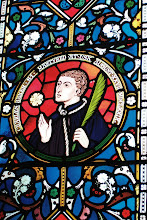On Monday, 18th November 1678,
Fr David Lewis, a Jesuit priest, was incarcerated in Monmouth Gaol. His false friend, John Arnold, who was a
Justice of the Peace and Member of
Parliament, had promised that he would not allow him to be treated with “any
incivility or severity” but had secretly ordered that a strict watch be
kept on the priest. Hence, Fr Lewis was
kept a close prisoner and not allowed to leave his cell. However, the Under Keeper, a more reasonable
man, allowed friends to visit the priest during the day. Through these visits the priest learned of
the fate of his friends and fellow priests.
He would also have learned of the sacking of the Jesuit College of St
Francis Xavier at a place called the Cwm.
Fr Lewis had served as Superior of the College and would feel great
distress at its devastation.
 |
| Monmouth's Ancient Bridge |
In the New Year, the new High Sheriff,
James Herbert, decided to move the County Gaol from Monmouth to Usk. So it was that on 13th January
1679, the Deputy Sheriff and the Head Gaoler rode with Fr David Lewis to
Usk. The weather was atrocious,
bitterly cold and snowing. When the
group reached Raglan they stopped at an Inn to warm themselves. While there a messenger arrived with sad news
for Fr Lewis. A friend and colleague
from the Cwm, Fr Ignatius Price, lay dying in a barn about half a mile
away. The dying priest wished to see Fr
Lewis. As he was himself a prisoner in
the custody of the Deputy Sheriff and the Head Gaoler, Fr Lewis was unable to
comply with this heart-rending request.
Fr Lewis wrote; “Whilst I was in Raglan, a messenger came to
the door of the Inn, desiring to speak with me on urgent business. A very good friend of mine, one Mr Ignatius
(alias Walter) Price, lay dying about half a mile away. He had undergone much hardship from hunger
and cold and lay dying. He desired to
see me. But I was quite unable to
perform the friendly duty, as I was under the actual custody of the
officers. So I only sent him my true and
best wishes for his soul’s happy passage out of this turbulent world to an
eternity of rest.” Three days
later, Fr Lewis learned of the death of his friend.
 |
| Site of Usk Gaol where St David Lewis was imprisoned |
Usk Gaol, also known as the House of
Correction or Old Bridewell, was situated on the north side of Bridge
Street. The Gaol, at 28 Bridge St, had
originally been a Friary, a house of the Grey Friars. It became a House of
Correction in the mid 1600s and served until Usk Prison was built about
1842. When Fr David Lewis was imprisoned
there it was crowded with Catholics who had refused to take the Oaths of
Allegiance and Supremacy. One prisoner
was a widow, Jane Harris, who had given refuge to a priest. She was betrayed by her butcher when he
noticed her buying extra meat! Fr Lewis
would have known most, if not all, of these people for he had spent his
priestly life toiling among the persecuted Catholics of the area, travelling
mostly at night and probably on foot, to bring them what help and comfort he
could.
 |
| St David Lewis was martyred on or near this spot in 1679 |
On 27th August 1679, this
good man whose kindness had earned him the name of “Father of the Poor” was
taken from Usk Gaol and dragged on a hurdle to a place known as the Coniger
where he was executed for the “crime” of being a Catholic Priest. The actual site of his death is believed to
be within the grounds of Porth-Y-Carne House, opposite the Catholic Church of
St Francis Xavier and St David Lewis.
The martyred Fr David Lewis was permitted a decent burial. Reverently carried in procession to the
Priory Church of St Mary, he was interred in the Churchyard. The grave of St David Lewis is the nearest
one to the main entrance of the church and every year on the Sunday nearest to
27th August pilgrims flock to this holy site to pay their respects
to the Last Welsh Martyr.
 |
| The Grave of St David Lewis |












.JPG)

.JPG)





No comments:
Post a Comment